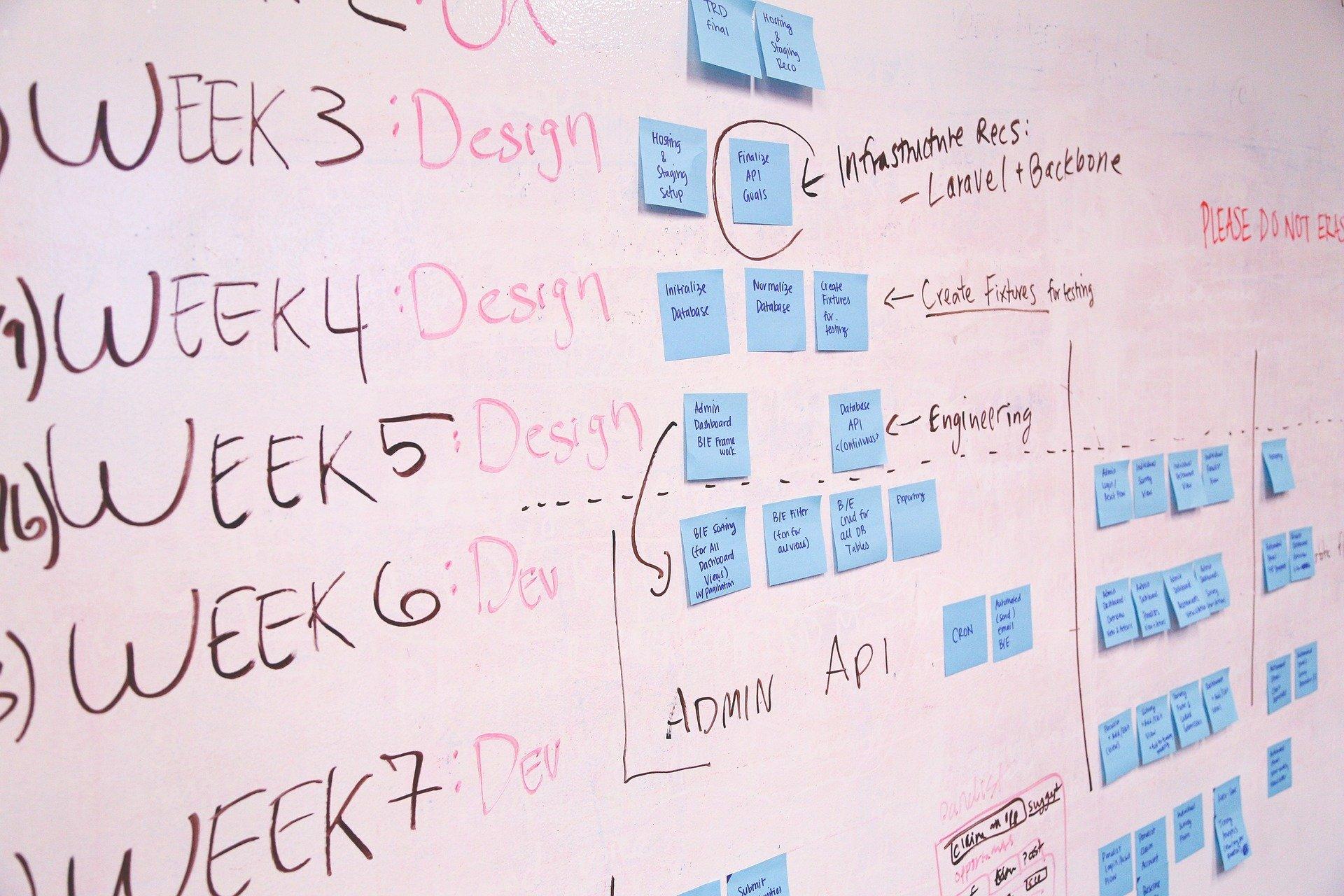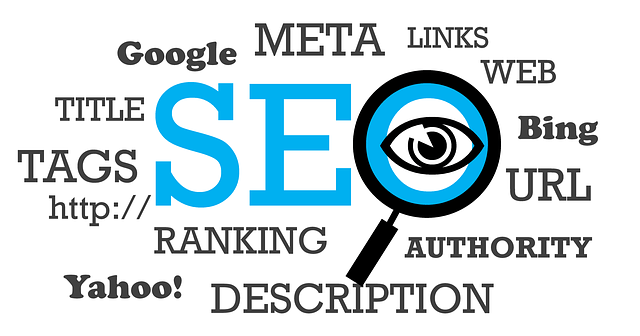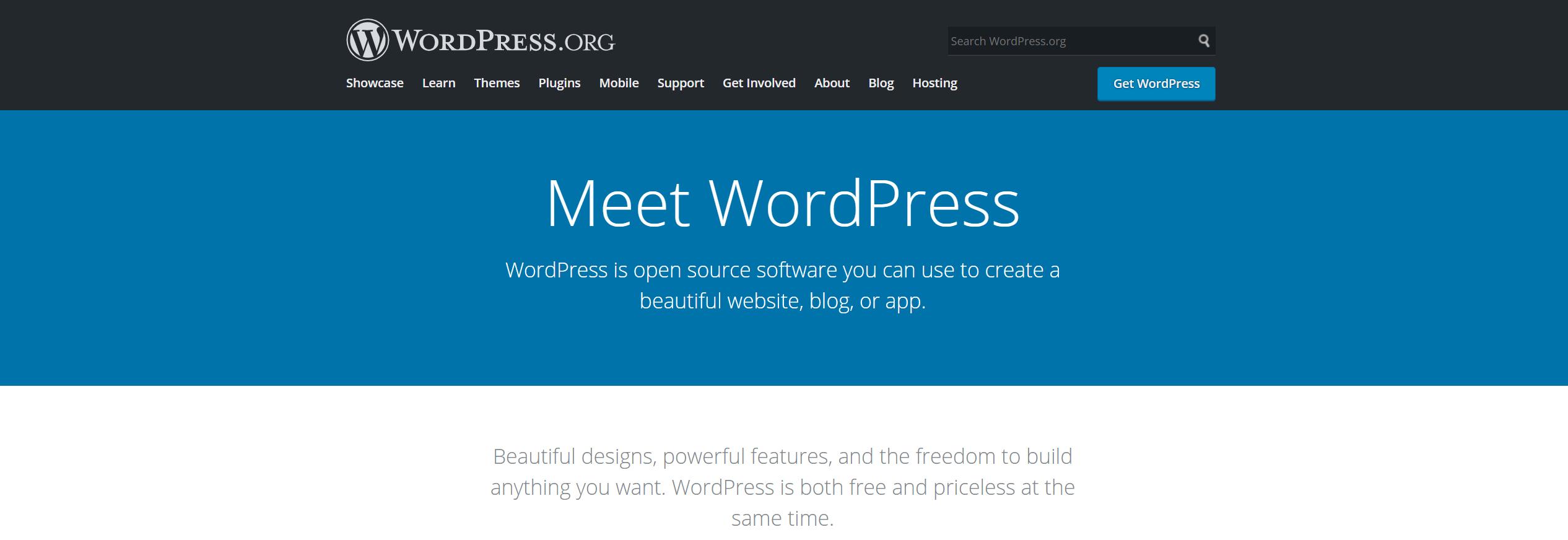WHY USE WORDPRESS?
For average business owners, names like WordPress, Joomla, Shopify, Magento, Wix, and Weebly might sound like alien names. You don’t know about them and honestly, you just don’t care, you just want a website that works. But developers are going to toss about a variety of options at you, each with their own price points, strengths and weakness…that you do care about.
WordPress, Joomla, Shopify, Magento, Wix, and Weebly are all platforms used to build websites, short of building a site 100% from scratch using the costly method of PHP/Javascript and HTML. Most business owners, will not what to go down that path, as the cost is prohibited. Thus you are left with WordPress, Joomla, Shopify, Magento, Wix, and Weebly .
Each has its own benefits, while many are used more often for niche websites with specific purposes. For example, Shopify only makes sense if you’re running an online store with zero interest in building your own brand name and adding custom features unique to you. Shopify, is not a platform you would start a blog with then turn into an eCommerce shop . Magento is in the same boat. Other website builders and platforms have more flexibility, and those are typically the ones that are most popular.
Everything from Squarespace to Wix has wonderful tools for certain skill levels, but they also have massive technology limitations, like not working on the mobile platform. A term called “responsive”. Another buzz word, that simply means, a website that changes how it presents it’s self based on what type of device is viewing it.
But you want a good explanation of why you should use WordPress over all of them.
- The software is free and open-source
- It adapts so you can make any type of website
- It supports numerous media types
- Has a Huge Community and is Priced Competitive
- You can scale up and expand your website with themes and plugins
- It is manageable
- SEO comes first
- You have full control of your website
- The blogging is hands down the best in the business
- The most POPULAR content management system in the business
1. The Software is Free and Open-Source
Both WordPress.com and WordPress.org are completely free to use, but WordPress.org is a self-hosted version server, where you have the advantage of controlling more of your site’s appearance and you can take advantage of advanced plugins that they provide. BUT, they are hosting your site and they are still in control of what you put in your site. It is a great options, for someone who does not want to pay for a technologist to put a site together, super for complete beginners, but it’s not exactly the best for a business that plans on making money. They control the show. It certainly is a step up from WIX, but you are still dependent on another service with pay-for plans. Thus not using WordPress.com makes sense. We recommend it for personal and hobby blogs.
If that is all the your desire…stop reading and hop over, the solution will work for you with the least amount of investment and hassle.
Explore it now:
When you navigate to the WordPress.org website, it explains the basics about the platform, but the only button (besides the regular menu) is a link to “Get WordPress.”
IF you want more, the WordPress software, the same software that runs on wordpress.org, is still free for anyone to download and install it, on any server you desire. In many cases, the host will offer a free download and installation to get your started.
Know that, it is free, because it is an open-source project that’s been around since 2003. This means that WordPress is developed by a collection of contributors (aka Geeks) . Open-source projects are typically free, with large communities, which is why you can get developers at a lower cost and plugins that are frequently no-cost. The users in this community, often take part in this community as beta testers or simple brand advocates, but there’s no requirement for any participation to use the software..
THERE IS A BUT....(isn't there always)
You still have to invest in hosting and that can be problematic.
While WordPress software is free, the server it must exist on is no. Certainly there are low-budget hosting like godaddy that can start around $5 a month, BUT, speed is not going to be it’s cornerstone. Nor are you going to get email associated with your domain name. Those are extra. In short, not only do they nickle and dime you for every single features, but when you go with low-cost, really cheap servers, that server is shared by thousands of other websites. All of those sites are going to compete for performance with your site. It is a balancing act of cost vs performance.
Giving that most viewers have an attention span of less than 20 seconds and 70% of the market is now mobile based, performance many become more of an issue than you realize. But we have digressed. The question is Why Wordpress.
2. It Adapts So You Can Make Any Type of Website
One of the common misconceptions about WordPress is that it’s mainly for building blogs. At one point in time that was, in fact, the case. WordPress was developed as a blogging platform, but that has changed drastically with the various new releases over the years.
In fact, WordPress is at an advantage due to its blogging roots. It’s by far one of the cleanest, fastest ways to write and publish blog posts, and that’s all included right from the start. Some website building tools think about design and apps first, then the blogging interface comes in as an afterthought.
That’s not the case with WordPress, so you can create a beautiful ecommerce site and know that the blog is an integral part of the development process.
See it in Action:
The list is endless, but here’s a taste of the types of websites you can make with WordPress:
- Blogs
- Business websites
- Portfolios
- Forums
- ECommerce sites
- Ratings websites
- Membership sites
- eLearning modules
- Chatrooms
- Galleries
- Personal websites for self-promotion
- Job boards
- Business directories
- Q&A websites like Quora
- Non-profit websites for collecting donations
- Wikis and knowledgebases
- Media-centric sites like YouTube
- Auction and coupon sites
The list of possibilities goes on and on.
THERE IS A BUT....(isn't there always)
You still have to invest in hosting and that can be problematic.
While WordPress software is free, the server it must exist on is no. Certainly there are low-budget hosting like godaddy that can start around $5 a month, BUT, speed is not going to be it’s cornerstone. Nor are you going to get email associated with your domain name. Those are extra. In short, not only do they nickle and dime you for every single features, but when you go with low-cost, really cheap servers, that server is shared by thousands of other websites. All of those sites are going to compete for performance with your site. It is a balancing act of cost vs performance.
Giving that most viewers have an attention span of less than 20 seconds and 70% of the market is now mobile based, performance many become more of an issue than you realize. But we have digressed. The question is Why Wordpress.
3. It Supports Numerous Media Types
Most document types are accepted to provide a variety of infomration to your viewer:
- Images
- Documents
- Audio
- Video
A Word of Warning
Yes, WordPress supports pretty much any type of media. However, you should follow the rules and ONLY legally use media that’s either owned by you, open for free downloads, or usable when credit is given. There are some nasty consequences for not following this guidelines, including custom search engines, owned by law firms, just looking to see if the image you have on your website matches the images that is registered and owned by others. The cost of ignoring this, can be in the thosands of dollars PER IMAGE. The general rule is DON’T.

4. Has a Huge Community and is Priced Competitive
As an open-source software, WordPress can be used by anyone. The userbase isn’t limited by pricing, premium customer support, or even skill level…which can be a mixed blessing. Before hiring anyone, make sure you know who are working with. But because there is a massive community, the prices, relative to other content management systems like Joomla, Shopify, Magento, Wix, and Weebly, is competitive.

5. You Can Scale Up and Expand Your Website with Themes and Plugins
This point is the most powerful of them all. Not only is WordPress competitive, but it is also scale-able. Any site can start small and through the use of sophisticated plugins and aligned themes, you can ramp up the quality and performance of your site within weeks, not months.
6. It is manageable
Many will tell you that WordPress is a snap to manage. Well that is true and false at the same time. The basic core of the content system is relatively simple providing you keep it up to date. That is where it is better to hire someone who understands the technology and can update your site, relative to the industry standard.
Updates from Wordpress and plugins runs between once a month to several times a week. While most of the time the upgrades work really well, there are those occasions where WordPress and plugins crash into each other. Those crashes can bring your site out of operation in a snap. If not the whole site, a portion of the site. That is where your backups really kick in and knowing how to find what is wrong becomes essential.
But WordPress does have tools that will enable a technologist to figure it out quickly. And a Maintenance manager, resorting to backup to restore your site in quick order. while that does not sound like a good justification for using WordPress, comparing to the other content management options available..it is easier to resolve the situation.

7. SEO Comes First
WordPress is known for having SEO built into the platform. In fact, WordPress automatically generates title tags and meta descriptions for all of your pages and posts. This lets search engines know about your content, and it will get you indexed and potentially moved up in the rankings. As with everything in WordPress, there are also more advanced features offered by plugins and online tools. Here are some SEO favorites to consider:
8. You Have Full Control of Your Website
A Google search for “website builders” or “website platforms” will reveal all sorts of results. WordPress will most likely be on all website building lists, along with competition like WIX, Squarespace, Joomla, Magento, Shopify, Weebly, and Jimdo. All of these are perfectly fine for making websites, but the non-open source ones, like Squarespace, Shopify, and WIX, limit your control to whatever features are offered in the premium packages.
That leaves you with some limitations like the following:
- The ecommerce functionality is usually built-in, so there’s not much you can do about expanding with plugins.
- You’re typically stuck with whatever hosting is provided. You don’t have the freedom to test hosts and go with the best value or highest performing.
- Adjusting code is limited to what the companies share with you. Even worse, you get stuck with a completely unique coding language, like with Shopify (It uses a language called Liquid). In short, it almost guarantees that you have to hire a specialized developer for changes you can’t handle yourself through the editor.
- You don’t technically have full ownership of your site and content. You’re renting the website from these companies. So when you stop paying, all of those files and pages are either lost or held by the company. With WordPress, you own the files, and no one can prevent you from moving them to other hosts.

9. The Blogging is Hands Down the Best in the Business
WordPress was born as a blogging platform. It’s had its competitors, but nothing currently compares to the power, elegance, and advanced tools you find in the WordPress blogging engine. Options like Tumblr, Medium, Ghost, and Blogger are all perfectly fine for hobbyists, but the pros go for WordPress. An incredible set of tools is located inside the WordPress blog editor.
You can run a simple, one-author blog by taking advantage of the formatting and media tools. There’s also the option to build a full online magazine by scheduling posts far in advanced and setting multiple user types for contributors and editors. Along with options for previewing, editing everything in the post, and keeping code completely out of the equation, you really can’t beat WordPress.
10. The Most POPULAR Content Management system in the business.
So jump off the bridge with them! Okay, just because every else is doing something isn’t always the greatest reason to follow along. But WordPress has proven itself time and again, so the word has gotten out about its performance, expandability, and ease-of-use. There’s a reason why over 455 million sites use WordPress.





